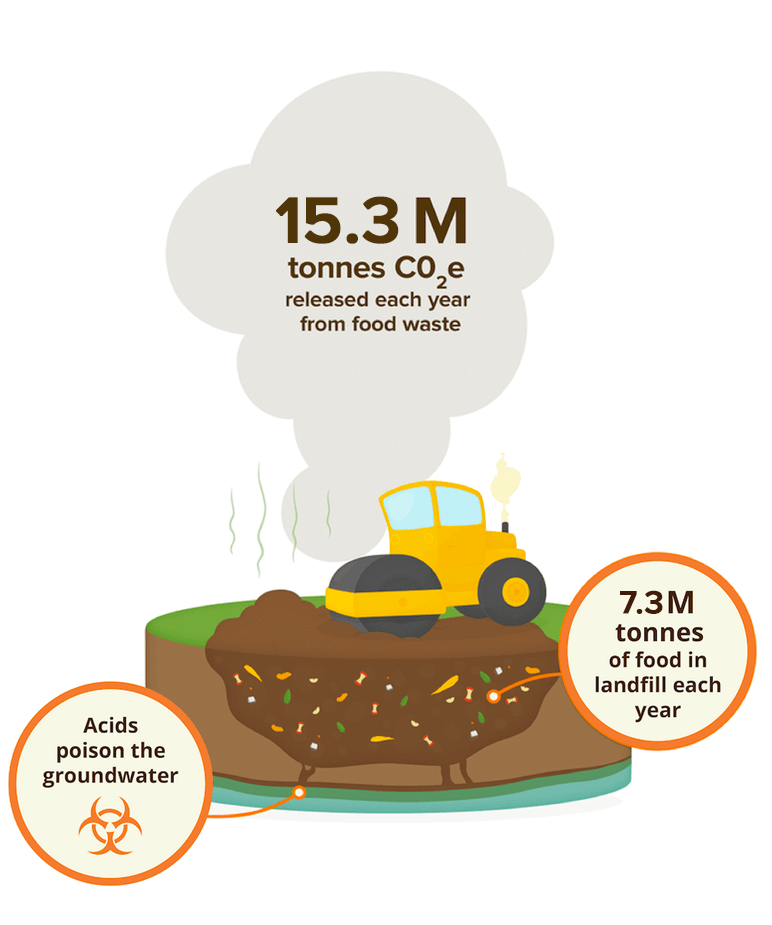Why compost?

When food scraps and other organic materials are sent to landfill, they begin to rot anaerobically (without oxygen) and release greenhouse gases, primarily methane (CH4), which contributes to climate change.
Methane is around 21 times more potent than carbon dioxide (CO2) so it's an important greenhouse gas for us to tackle, and we can, easily, by avoiding food becoming waste, and by recycling what does become waste, at home. Recycling food scraps at home also prevents it needing to be transported to landfill – another polluting factor.
When rotting, organic material does end up in landfill, it is mixed with heavy metals and other chemicals from electronics creating a toxic sludge (leachate) that can sometimes eat its way through the landfill lining. Leachate has the potential then, to enter our rivers, creeks and water supplies – even more reason to find a place for different types of waste!
How big is the problem?
By composting your food scraps instead of sending them to landfill, households can significantly reduce their footprint on our planet. In fact, about 3% of Australia’s total greenhouse gas emissions comes from organic matter rotting anaerobically (without air) in landfills. To put that in context, that is about as much as the entire country’s aviation industry.
The journey of food to our plate
Long before our food even gets to our plate, it has already had a long, resource-intensive journey. It takes a lot of water, fertiliser, energy, refrigeration, storage, packaging and transport fuel to grow your food and get it to the supermarket before your take it home. Composting your food scraps is a good way of reducing the impact of landfill waste, but it’s also important to minimise food waste in the first place.
Visit the Love Food Hate Waste website to learn how you can minimise the amount of food that becomes waste in the first place using simple methods such as planning your meals and shopping lists.
You can also sign up to Smart Solutions for Waste, a sustainable waste-loss program for the City of Port Phillip’s diverse, seaside community.


